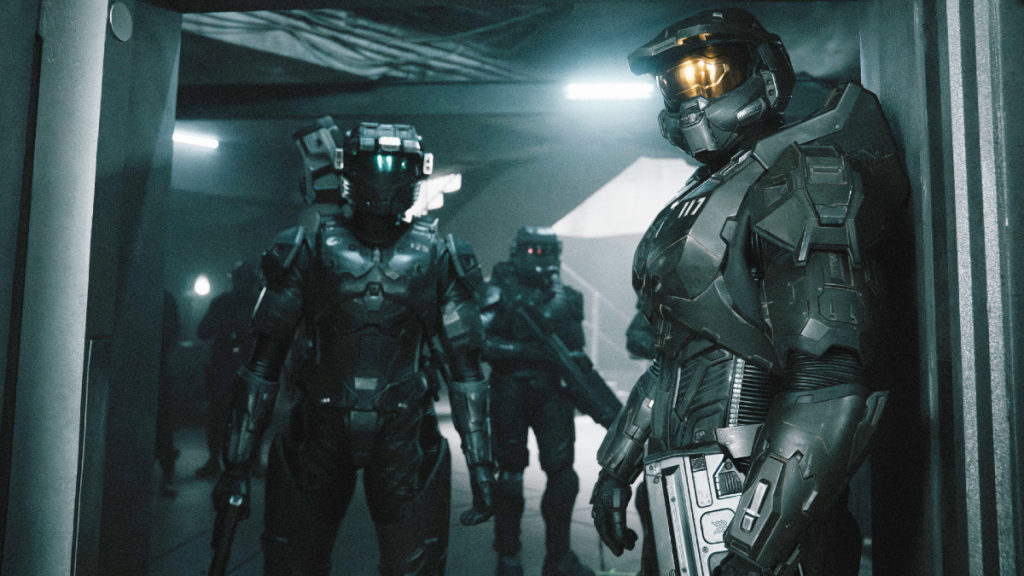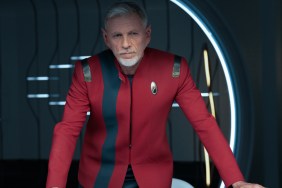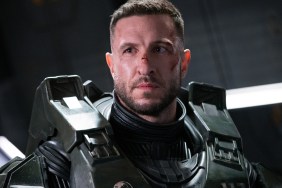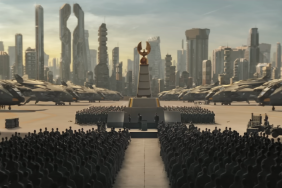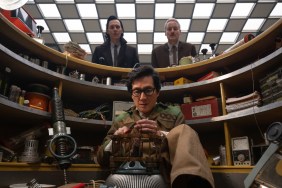When the first Transformers live-action movie came out, hardcore fans had a uniform objection: why was the movie more about the human characters than the robots? Similarly, when Halo season 1 dropped on Paramount+, gamers weren’t happy with the fact that a game about an all-out war between humans and aliens became a show that rarely actually depicted full-on combat. In both cases, the reason is the same: those making it are giving you as much as they can afford to and writing creatively around the rest. Transformers movies, as they progressed, featured more and more onscreen robot action, to the point that Mirage is arguably a co-lead in Rise of the Beasts. And Halo season 2 wants to give you more Covenant Elites onscreen, in part by making the most of dark rooms, thick mist, really fast camera moves, and cloaking devices.
Mask Mandate?
Another objection some fans have had to Halo as a series is the Master Chief (Pablo Schreiber) removing his helmet and, indeed, his entire Spartan armor, but that simply reflects a major storytelling difference between mediums. Master Chief is fully covered in the game in part, so he can be an avatar for every player, or at least every male player. If you never see what he looks like, he might look like you under there. That’s a good strategy for audience identification. But if you’re going to tell a story that shows anything other than the character in battle — like him sleeping, having his wounds treated, or even taking a shower — it becomes preposterous at a certain point to keep him fully clothed and armored 24-7.
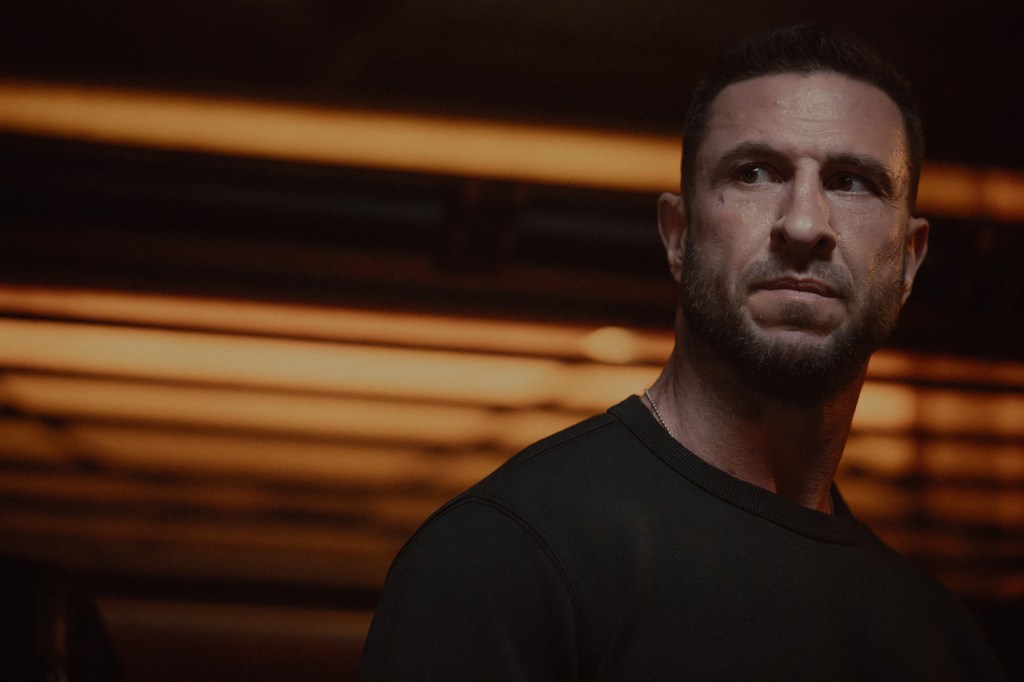
For what it’s worth — a lot, actually — Halo season 2 actively interrogates the whole idea of the suit versus the man. Master Chief’s superiors point out that it can be anyone in the suit, while the man himself, who also goes by John-117, self-examines what it means to be a big, nigh-indestructible soldier when everyone else around him is so much more vulnerable. Schreiber, whom the Internet claims is six foot five, is made to look around seven feet tall, presumably through the deliberate casting of shorter costars. On one level, he’s an indestructible hero in the vein of ’80s Schwarzenegger or Stallone; on the other, he’s self-conscious about being little more than the violent object critics of the time accused those stars of being. Rather than having a quippy sense of humor about it, though, he carries an air of (disciplined) regret more appropriate to PTSD.
Mastered Grief
Halo exists in a pretty melancholy universe generally. We’re told that the government’s big plan is to keep the war with the alien Covenant to the outer fringes of colonized space so that people near the center can live happily and obliviously, but we never see any of that happiness. It’s just survival and despair out on the frontier — in the first four episodes, we meet two distinct older female characters who advocate the benefits of dying with their traditions rather than merely surviving to potentially face the same thing again later on.
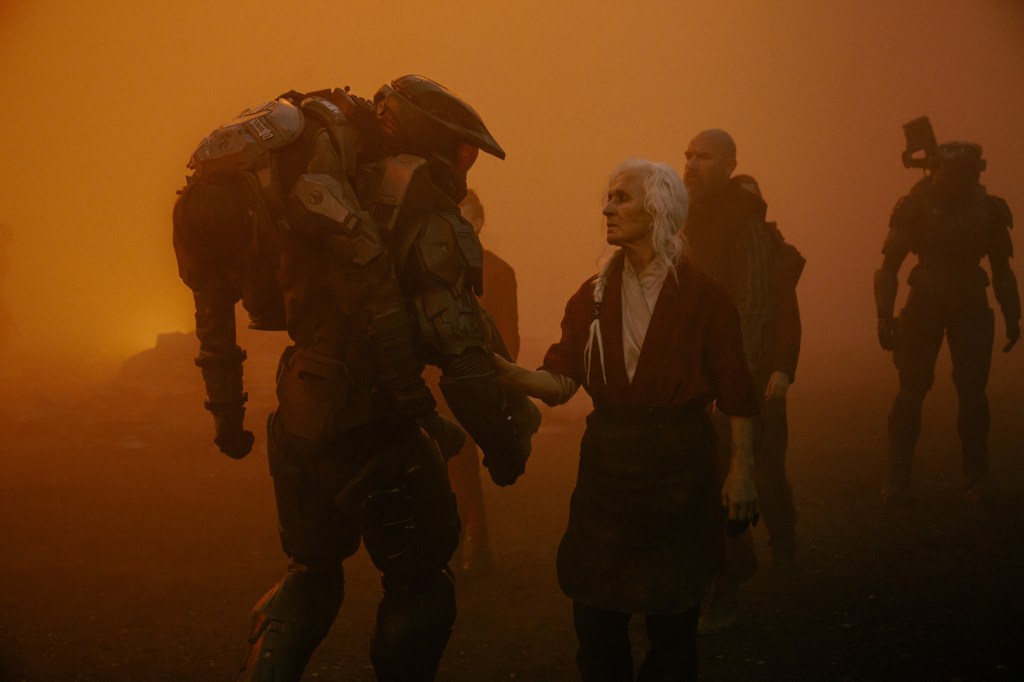
There isn’t even a strategy for humanity to win; merely to mitigate the casualties while refusing to listen to the actual military officers who’ve been in the field. If this vibe seems somewhat familiar, it’s probably no coincidence — like the Master Chief in the game, we’ve now all been through a period of keeping our faces covered, as ineffectual plans of higher-ups failed to do much about the external threat.
New Beginnings
Surprisingly, season 2 doesn’t pick up on many of the most immediate cliffhanger threads from the first. Cortana, who seemed to have taken over John, has been removed from his head off-camera, and we re-meet him and his team on a new mission as he deals with Predator-like cloaked Covenants in an unexpected place. The corrupt Dr. Halsey (Natascha McElhone) is missing and presumed dead; Covenant ally Makee (Charlie Murphy; no, not THAT one) is simply presumed dead, but John thinks he sees her during that first battle. Halsey’s replacement is the instantly punchable Ackerson (Joseph Morgan, possibly cast due to his resemblance to Burn Gorman), whose grasp of military strategy appears to be absolutely terrible.
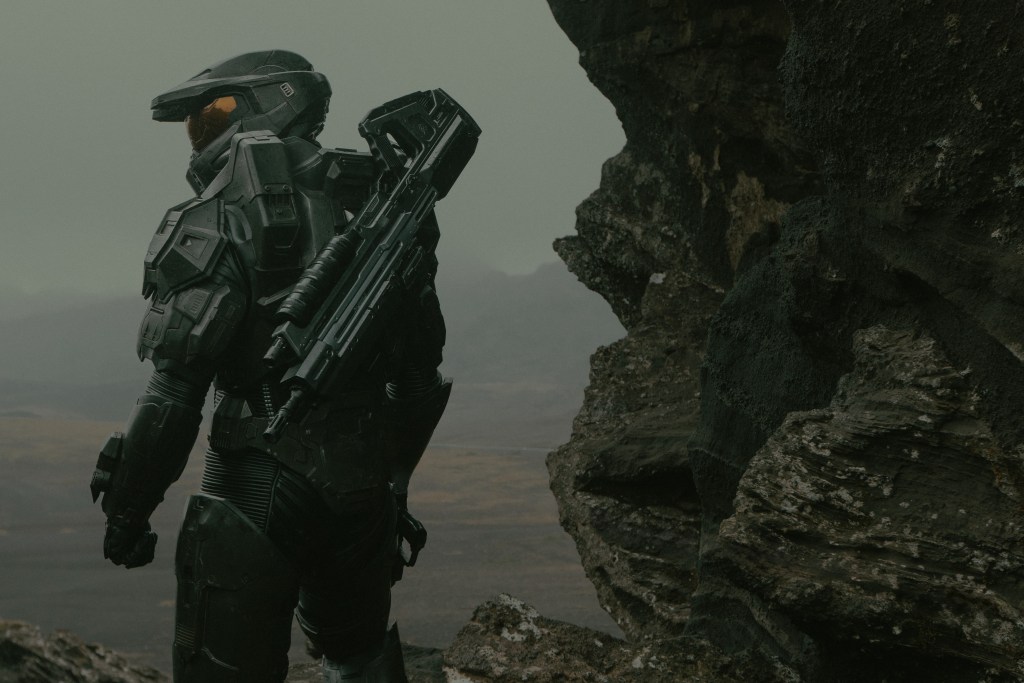
With John having removed his emotion-suppressing chip and nobody to corroborate the Predator-style adventure, his sanity is being questioned by the suits right when he might be needed the most. There’s a possible version of season 2 that could have been even more interesting, in which the viewer also wondered if what John saw was real, but that’s not the one at hand. Master Chief is the good guy, and the show’s point of view never questions his perception, at least on this subject.
Woodbine’s No Shocker
As the best-known actor in the cast, Bokeem Woodbine gets the least screen time for a major character but makes an impact when he’s there. As Soren, a former Spartan turned pirate, he sets off to follow rumors of Halsey still living; unfortunately for us, his storyline finds excuses to take him offscreen quite a bit in favor of Kwan (Yerin Ha), who just isn’t that interesting when not actively partnered with John. Again, this is probably budget considerations and Woodbine’s asking price, but Soren’s family is, by the nature of the plot, nice and dull relative to him and makes for lackluster, predictable drama when featured.
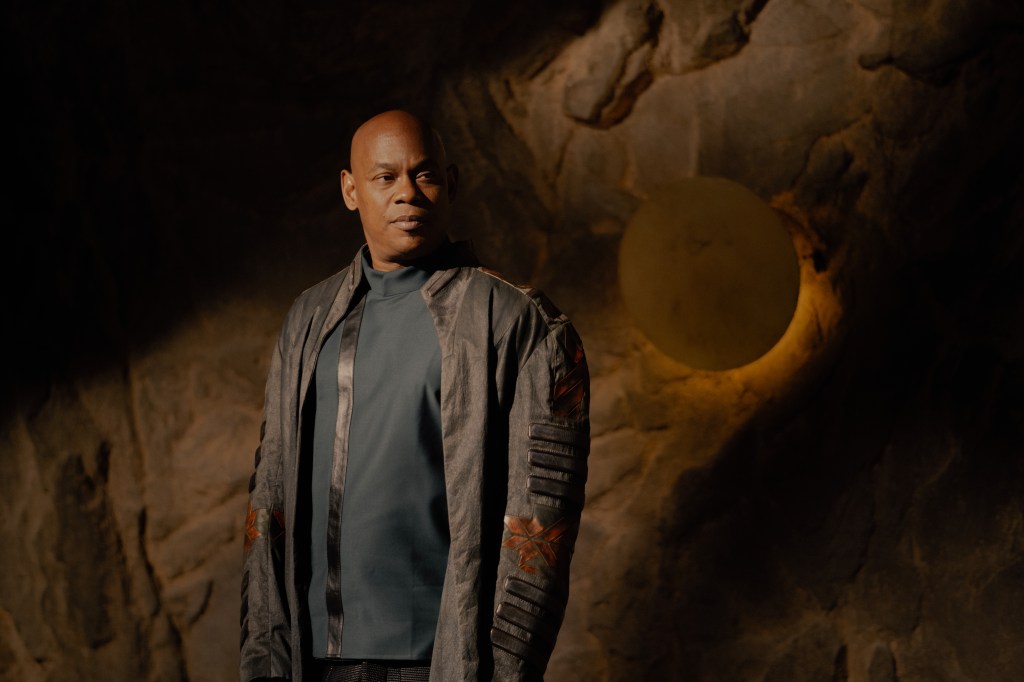
Season 1 featured a 1:3 action ratio — of the nine episodes, three featured game-style battles. In the first half of season 2, we’re already doing slightly better, thanks to a capture-the-flag training sequence that consciously evokes multiplayer action and the inevitable fall of Reach, which feels like a much bigger-budget take on the original Battlestar Galactica’s destruction of Caprica (that’s a compliment). Adjust budgetary expectations accordingly, but for a TV show apocalypse, it does the job, even borrowing the sort of stairwell action that Ladj Ly’s Les Miserables did so fantastically. It’s worth noting that my previous critique of sparse set dressing has been addressed — this time around, characters’ personal spaces do include personal items and clutter.
This…Is…Spartans!
Halo’s grimdark universe won’t be for everyone, but with its undercurrent of omnipresent doom and its dedicated heroes still determined to fight on anyway, it feels like the right show for these times. If Zack Snyder cared as much about the story as he does visuals, he might have come up with something like it for Rebel Moon. Halo’s still not likely to win any acting Emmys, but I’d bet on a rabid cult following in the years to come.
Grade: 3.5/5
Halo season 2 begins on Paramount+ on Feb. 8.
